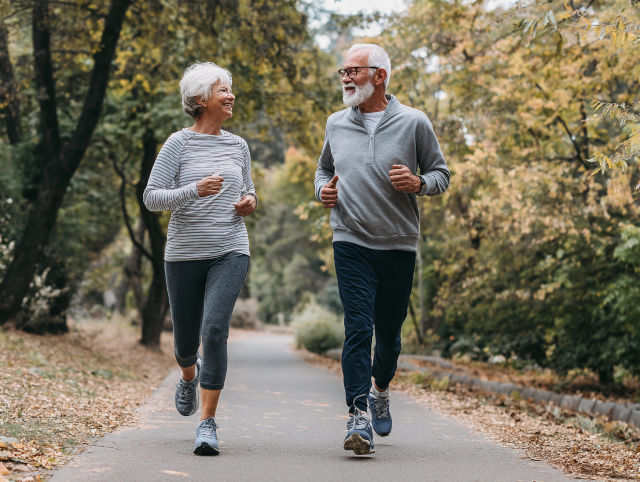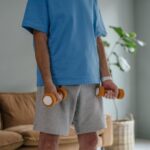Feeling drained can make even light exercise feel daunting, and this tendency becomes more noticeable as people grow older. The body’s ability to generate energy, recover from exertion, and maintain a steady mood can all shift with age, leaving many individuals feeling that regular activity is too tiring to manage. A recent pilot clinical trial conducted at UT Health San Antonio has identified a potential way to ease some of these barriers. The study explored whether supplementing with branched-chain amino acids (BCAAs) while following a structured exercise routine could help older adults feel less fatigued, improve physical strength, and reduce depressive symptoms. Rather than treating the supplement as a standalone fix, the researchers positioned it as something that might make exercise itself more accessible and rewarding.
The research is grounded in the broader question of how ageing alters the body’s internal systems, particularly those connected to inflammation and metabolism. Jason O’Connor, PhD, a co-author of the study and associate professor in the Department of Pharmacology at The University of Texas at San Antonio, explained that his team has spent years investigating how chronic, low-grade inflammation drives functional decline. Inflammation tends to increase with age and can interfere with both physical and emotional resilience. O’Connor noted that amino acid metabolism has emerged as a key factor in these processes. Amino acids serve as the building blocks of proteins and also help regulate brain chemistry; disruptions in their use and balance may influence energy levels, muscle maintenance, and mood. For older adults already coping with fatigue or reduced mobility, even a slight improvement in metabolic efficiency could make a meaningful difference.
The trial itself was published in the August 2025 issue of Dietetics and ran over eight weeks. Twenty participants, with an average age of about seventy and all living with obesity, took part in a programme combining moderate aerobic exercise and strength training. The study was double-masked and placebo-controlled, meaning that neither participants nor researchers knew who received the BCAA supplement or an inactive placebo. This design helps ensure that neither expectation nor bias affects outcomes. What emerged at the end of the eight weeks was a noticeable contrast between the two groups. While those who exercised without supplementation experienced modest improvements, the group taking BCAAs reported far greater gains. Fatigue decreased by roughly 45%, depressive symptoms declined by about 29%, and there were measurable upticks in strength and endurance.
Understanding why BCAAs might exert these effects requires looking at what they actually are. The three amino acids in this group—leucine, isoleucine, and valine—cannot be produced by the body and must be obtained through food or supplements. They are essential for muscle protein synthesis and recovery, which becomes increasingly relevant as muscle naturally declines with age. Yet the benefits appear to extend beyond muscle tissue. Several lines of research suggest that BCAAs may reduce perceived mental fatigue, perhaps by modulating neurotransmitters involved in alertness and emotional balance. They may also trigger cellular pathways that defend against muscle breakdown. For older adults, these combined effects could translate into feeling more capable during exercise and recovering more comfortably afterwards. In other words, the supplement does not create strength on its own, but it may enable individuals to participate more fully and consistently in the movements that build strength.
Even so, the study’s authors stress the importance of perspective. The improvements seen here, though impressive for a small pilot trial, are not enough on their own to justify universal recommendations. Larger, longer-term studies are needed to confirm the results, determine optimal dosages, and explore how differences in age, health status, or lifestyle may influence outcomes. O’Connor and his research team are already organising further trials, including studies involving ageing veterans. They are also pursuing more detailed inquiries into how amino acid metabolism interacts with inflammation levels, muscle adaptation, and mood regulation. The long-term goal is a clearer, more personalised understanding of how nutrition can support healthy ageing, rather than a one-size-fits-all prescription.
Another crucial factor to consider is that supplements interact differently with different bodies. Although BCAAs are widely available, they can affect medical conditions or medications, especially in older adults managing complex health profiles. This is why the researchers caution that anyone considering adding BCAAs to their routine should first consult a healthcare professional. Supplements can be helpful, but they are most effective when introduced with guidance, context, and awareness of the individual’s overall health. The real value of the study’s findings lies not in encouraging people to rush out and buy supplements, but in showing that there may be supportive strategies that help older adults stay active and feel better while doing so.
Ultimately, this research opens the door to a hopeful message: maintaining activity in later life need not feel like fighting against the body’s limits. With thoughtful support—whether nutritional, behavioural, or therapeutic—it may be possible to feel less exhausted and more empowered. Exercise remains one of the strongest contributors to physical and emotional wellbeing, particularly in ageing. Suppose BCAA supplementation can make the path toward regular activity smoother, more manageable, and more uplifting for individuals who struggle with fatigue or low motivation. In that case, it represents not a shortcut but a gentle nudge toward strength, resilience, and renewed confidence.
More information: Ronna Robbins et al, Branched-Chain Amino Acids Combined with Exercise Improves Physical Function and Quality of Life in Older Adults: Results from a Pilot Randomized Controlled Trial, Dietetics. DOI: 10.3390/dietetics4030032
Journal information: Dietetics Provided by The University of Texas at San Antonio Health Science Center








